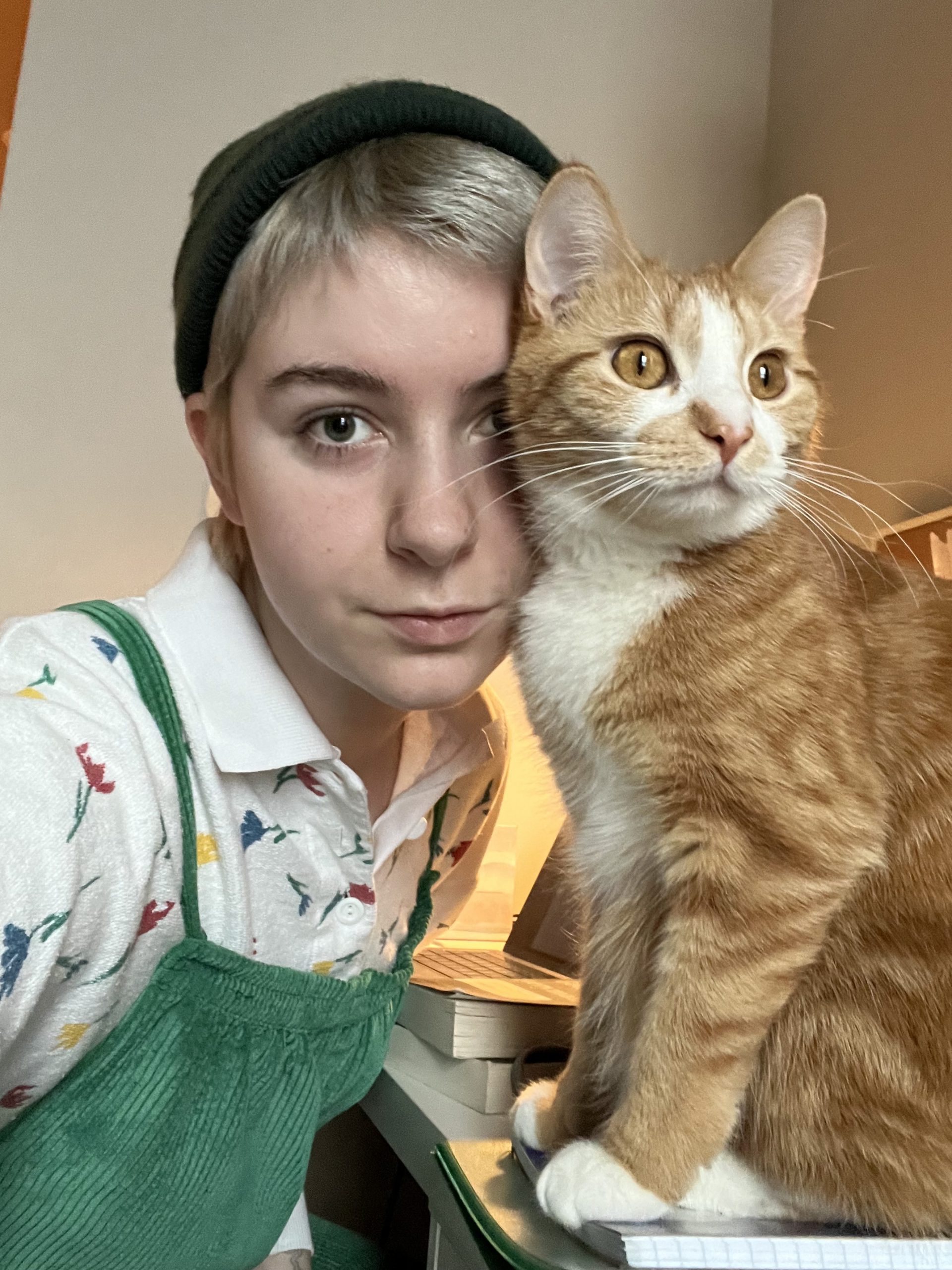Image: Olivia Kemp and her emotional support cat, Seb in February in Minneapolis, Minnesota. (Courtesy of Olivia Kemp)
“I was first diagnosed with anxiety and depression the summer after my senior year of high school. From there, I got medicated. During COVID-19, I started noticing I was having really bad attention problems, and I started learning more about ADHD in [assigned female at birth] people, and started to realize like, oh wow, I thought everyone struggled with these things. The more I read, the more I saw myself in the symptoms lists.
So in August before my junior year in college, I decided to go get tested for ADHD. I went to a neuropsychologist back in Michigan, which is where I’m from. It was a really, really long test. I felt so stupid during it because I was getting everything wrong. But then I, of course, got my ADHD diagnosis. It was really validating, honestly. It’s unfortunate that we can’t just struggle, and let it just be a struggle— it has to have a name to it to feel validating. But, you know, now that I have that label I can use, people are sometimes more understanding, or now I can get different accommodations that I couldn’t get before.
In general, I would say my anxiety and depression comes in waves. Certain weeks will be really good, and I’m not really thinking any anxious or depressive thoughts, but then other days it’s honestly sometimes really hard to get out of bed in the morning and find a reason to want to go to class. Especially for the classes that are just kind of requirements that I’m not super passionate about.
ADHD paralysis is real. I have this class at 12:20 that’s my first thing of the day, and I will feel almost paralyzed, like I can’t do anything before that, which often leads me to procrastinate. It’s just a vicious cycle with ADHD sometimes with getting distracted or not having the energy or motivation to do something. Or if something isn’t bringing me enough stimulus, it’s sometimes really hard to focus.
Sometimes on certain weeks I feel really not passionate about things that I normally am passionate about. Losing interest or not finding joy in things you love is really common in people with depression, and something I deal with sometimes.
I have an emotional support animal, and he brings me a lot of joy and relief. I’ve always been a huge animal person. He also provides me a little bit of a reason to get up in the morning, like I have to feed him, and therefore I need to show up. Just having a constant presence around, and something that will love you unconditionally is really special. I also love crafting. I crochet, I make jewelry. Just getting my hands busy and getting out of my head.”
This interview has been edited for length and clarity.
Interview conducted by Macy Harder.
